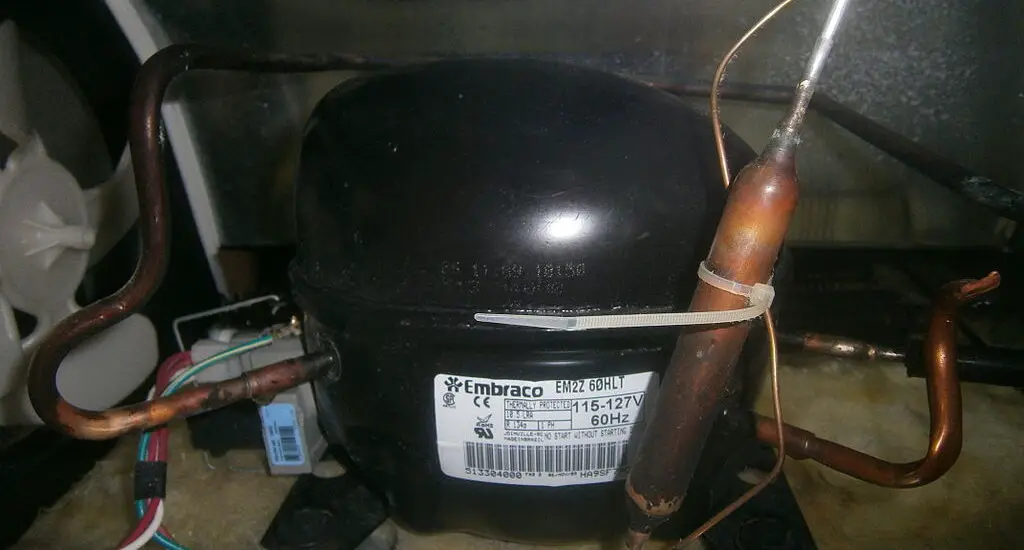If you’ve found yourself asking, “Is my refrigerator compressor working?”, you’re not alone. In this comprehensive guide, we will take you through each step to help you determine the condition of your compressor.

Is My Refrigerator Compressor Working?
If you’ve noticed signs that your compressor may not be functioning correctly, here are some steps you can take to perform a basic assessment:
Unplug the Fridge: Safety should be your first concern. Unplug the refrigerator from the electrical socket to avoid any electrical hazards while you check the compressor.
Locate the Compressor: Move behind your refrigerator. The compressor is usually a cylindrical or box-like metal component situated at the lower rear section of the fridge.
Touch Test: Once you’ve located the compressor, put on safety gloves and cautiously touch it. Normally, a working compressor will feel warm to the touch due to its operation. Note that if it’s too hot, this could also be a sign of overworking and may require professional attention.
Sound Test: Plug the fridge back in while being cautious to stay clear of any electrical components. Listen carefully; a functional compressor should emit a low humming sound as it operates. A lack of sound or abnormal sounds could indicate a problem.
Vibration Test: With the fridge plugged in and running, carefully place your hand on the compressor. You should be able to feel a slight vibration, which generally indicates that the compressor is active and pumping refrigerant.
Check for Frost: Examine the freezer for any signs of excessive frost or icing. This could indicate irregularities in the cooling process due to a malfunctioning compressor.
If, after conducting these tests, you are still uncertain or have determined that your compressor is not functioning properly, it is advisable to seek professional help for a comprehensive diagnosis and possible repair or replacement.
Check out these other articles…
5 Types of Refrigerator Compressor: Essential Knowledge
How Do I Know What Size Compressor I Need for My Refrigerator?
What Happens When a Fridge Compressor Fails? 4 Signs & Fixes
What Does a Compressor Do in a Fridge? An Essential Guide
Can You Fix a Compressor on a Refrigerator? Answer & Guide
What Can Damage a Refrigerator Compressor? 5 Key Threats
Are Refrigerator Compressors Expensive? Comprehensive Answer
Signs Your Compressor Might Not Be Working
Recognizing the warning signs that your refrigerator’s compressor may not be functioning correctly is crucial to take timely action. Here are some common symptoms, along with explanations:
Fridge is not cooling: The most obvious sign is that your fridge and freezer compartments are not maintaining the temperature you’ve set. This indicates that the compressor, responsible for pumping refrigerant through the cooling coils, might not be doing its job.
Strange noises: A properly functioning compressor emits a low humming sound. If you hear clicking, buzzing, or louder-than-usual humming, it’s a signal something could be wrong. These noises can occur if the compressor struggles to pump the refrigerant or if there are electrical issues.
Food spoiling quicker than usual: If you find that food items are not as cold as they should be, or if perishables are spoiling faster than usual, this could be a direct result of compressor failure. The compressor’s job is to maintain optimal temperature conditions for food preservation. Failure to do so can lead to spoilage.
Frost Build-Up: Excessive frost in the freezer may indicate that the compressor is struggling to maintain temperature, causing inconsistent cooling and leading to frost accumulation.
If you encounter one or more of these symptoms, it’s a good indicator that you should test your compressor’s functionality or seek professional advice.